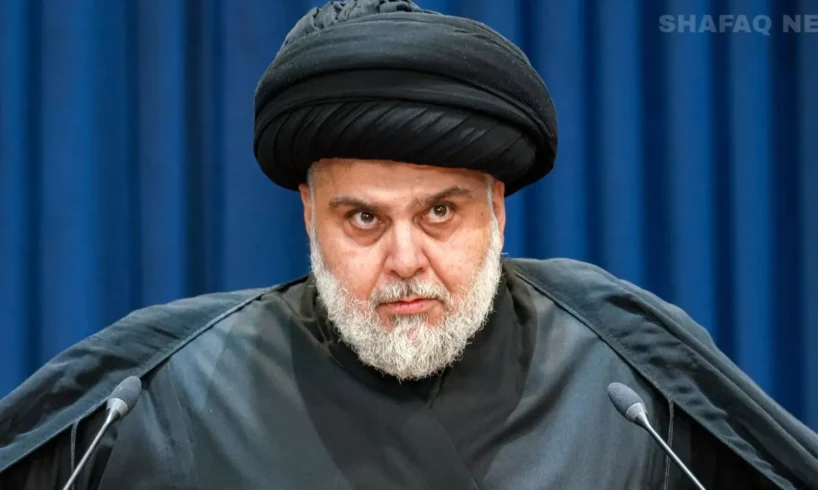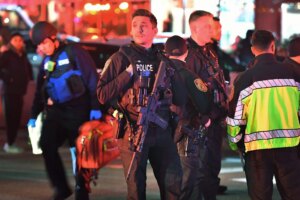
Shafaq News
Iraq’s political
landscape entered a new phase of uncertainty following Muqtada al-Sadr’s
renewed call to boycott the upcoming parliamentary elections, scheduled for
November 11, 2025 — a move that has once again unsettled alliances and revived
questions over voter turnout and legitimacy.
Al-Sadr, leader of
the Patriotic Shiite Movement (PSM), reiterated his decision earlier this week,
arguing that elections “will not bring genuine change” and that “one cannot aid
the corrupt in their corruption.” His remarks, in his words, echoed a fatwa by
his late father, Grand Ayatollah Mohammad Mohammad Sadiq al-Sadr, reaffirmed
his long-standing disillusionment with Iraq’s political class.
A Boycott With
Broader Intent
For observers close
to the movement, al-Sadr’s stance is less a tactical withdrawal and more a
strategic statement.
Manaf al-Moussawi,
head of the Baghdad Center for Strategic Studies and a researcher known for his
proximity to the PSM, explains that the boycott is not confined to one region
or community; “it represents a comprehensive rejection of a political process
that has failed to produce reform,” noting that the decision stems from
repeated attempts—both domestic and foreign—to derail al-Sadr’s reformist
project.
According to
al-Musawi, “the next elections would merely reproduce the same elite,” making
the boycott a form of political pressure aimed at forcing systemic change
rather than a retreat from the arena.
Still, he anticipates
limited shifts in parliamentary balance, arguing that the absence of the PSM
bloc may “undermine transparency and credibility, but the overall sectarian
distribution of seats will remain largely unchanged,” and downplaying
speculation that Sunni representation could significantly increase.
Read more: Iraq’s political enigma: The unpredictable maneuvers of Muqtada al-Sadr
Voter Turnout At
Stake
Analyst Mujashaa
al-Tamimi considers the PSM boycott a potential turning point in public
engagement. He expects a visible decline in participation, especially in
provinces where the Al-Sadr wields influence—Najaf, Maysan, Dhi Qar, and
Baghdad among them. “This will expose the depth of alienation between voters
and the political class,” he remarks, adding that “elections dominated by
patronage and money cannot restore public trust.”
Yet al-Tamimi does
not view the withdrawal as permanent, pointing out that the movement’s absence
from the ballot box remains “a protest tool—one that could reshape future power
dynamics if electoral rules are reformed.”
Shifting Ground And
New Players
Political researcher
Aed al-Hilali interprets the call for boycott as a disruptive force that may
redraw Iraq’s electoral map, particularly in mixed provinces like Baghdad,
Diyala, Babil, and Kirkuk. The PSM base, he notes, “is one of the most
disciplined in the country,” making their withdrawal especially consequential.
“Lower turnout could
erode the traditional balance among blocs,” al-Hilali explains. “Smaller or
independent groups might seize unexpected gains as votes scatter.” But, he
warns, “al-Sadr’s nonparticipation does not equal disengagement. He still holds
powerful levers of social and grassroots influence that could be activated
after the elections, potentially leading to a more fragmented and unstable
parliament.”
Unease Within The
Coordination Framework
Within the ruling
Shiite alliance, anxiety is growing. Lawmaker Mukhtar al-Mousawi from the Fatah
Alliance, led by Hadi Al-Ameri, acknowledges that Al-Sadr’s absence “will have
a one-hundred-percent impact on Coordination Framework parties,” particularly in
Baghdad’s Al-Sadr City, Shaab, and Kadhimiya districts, as well as across the
southern provinces.
He warns that the
resulting imbalance could weaken Shiite representation within Iraq’s informal
tripartite system. “If the turnout gap widens, the political equilibrium
between Shiites, Sunnis, and Kurds will be disrupted, risking instability
across the governing structure.”
Sunni Calculations
Among Sunni
politicians, there is little expectation of direct benefit, as Mohammad Qutaiba
al-Bayati, a member of parliament from the Taqaddum Party led by former Speaker
Mohammad al-Halbousi, sees, dismissing the notion that a PSM withdrawal would
translate into Sunni gains. “The PSM electorate is ideological and
cohesive…Their absence diminishes the overall legitimacy of the process, not
just one component’s share.”
Political researcher
Abdul-Qader al-Nayel suggested that the boycott “will elevate abstention rates
across all communities.”
Under Iraq’s
quota-based system, established since the early Governing Council, seat
distribution is largely pre-set—around 90 seats and six ministries for Sunnis
regardless of turnout. “The idea that Sunni blocs could fill the Sadrist vacuum
is misleading,” al-Nayel concludes. “In fact, the likely beneficiaries will be
armed or pro-Framework lists that mobilize through organized patronage
networks.”
Read more: Iraq’s political crossroads: Al-Sadr’s boycott, Al-Hakim’s mediation
A Test of Legitimacy
and Leverage
The coming months
will test whether al-Sadr’s strategy of abstention translates into meaningful
leverage or further marginalization. For now, his call resonates beyond his
movement, reflecting widespread fatigue with a political order many Iraqis see
as resistant to reform.
While the
Coordination Framework may gain short-term electoral advantage, the analysts
caution that legitimacy—not seat count—will determine Iraq’s next phase. If the
boycott succeeds in depressing turnout, the next parliament could emerge
weaker, less representative, and more fragmented than ever, deepening the very
crisis al-Sadr says he sought to expose.
Written and edited by
Shafaq News staff.





